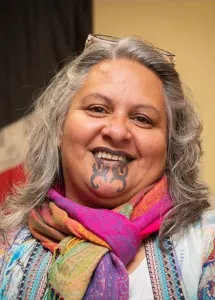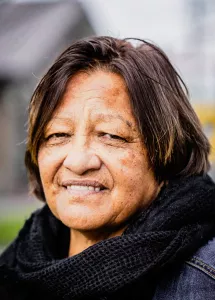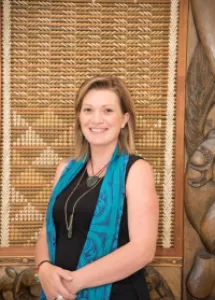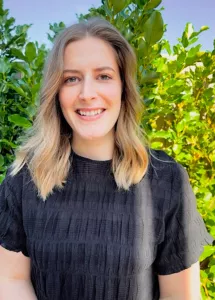
Decades of Leadership
Emeritus Professor, KNZM, FRSNZ FRANZCP
Mason Durie has spent most of his life as a leader. He grew up with his two brothers in Feilding, and all three went to Te Aute College in Hawkes Bay, where Mason became Head Prefect in 1956 and 1957. Their grandfather, Mason Durie Senior, was influential in guiding his grandsons towards their future careers. Young Mason was inspired by his grandfather’s leadership and by the leadership that was part of the Te Aute tradition and went on to graduate in medicine from Otago University.
Later, after graduating with distinction from the four-year post graduate programme in psychiatry at McGill University in Montreal, Canada1, Mason returned to the Palmerston North Hospital to practice at the newly opened psychiatric unit, Manawaroa. He became Director of Psychiatry there until his nomination to the 1988 Royal Commission on Social Policy2 as a full-time commissioner. Despite his demanding career in psychiatry and then in academia, outside the workplace, he has served on Māori committees and on community and national bodies. In all of these, his leadership has been strategic and always aligned with Māori aspirations. The examples that follow give some insight into the domains he covers and the ways in which this strategic alignment is used to positive effect.
In 1982, Mason established a health committee in the Manawatū-Horowhenua region and obtained funding to employ four Māori community health workers to work with whānau. They were to become the forerunners of the Māori community health movement. In another guise, Mason was actively involved in the years of work that preceded the establishment of the first modern wānanga, Te Wānanga o Raukawa and then, from its foundation, went on to serve on the Mana Whakahaere (Council) for over 20 years. He also served as the foundation chair of Te Rūnanga o Raukawa in the region.
A sample of the breadth of his national body service includes The Mental Health Foundation, the Alcohol Liquor Advisory Council, Chair of the Standing Committee on Māori Health, Te Papa Tongarewa Museum of New Zealand, The Royal Commission on Social Policy, the New Zealand Foundation for Research, Science and Technology Board of Directors, The Māori Advisory Committee for the Law Commission, a Guardian for the Secondary Futures Project, a Commissioner on The Families Commission, and Chair of the Core Health Services Committee among others. Such involvements built his understanding of the machinery of Government and the development of national policies to assist Māori advancement. That understanding would be put to good effect in his compilation, as Chair, of the Report of the Whānau Centred Initiative Taskforce3, which resulted in the launch of Whānau Ora the strategy.
In 1988, Mason was invited to become professor and head of the fledgling department of Māori studies at Massey University. It was a challenging shift from medicine to Māori studies. Under his leadership, the department grew to occupy a leading position in the university and in the national sphere. Its influence extended to programmes previously beyond the traditional prerogatives of Māori studies departments. It gained one of two new health research centres funded by the Health Research Council; it secured funding for a new initiative, the Māori Battalion C Company Research Project, and for a longitudinal study of Māori households, Te Hoe Nuku Roa4, which is still in progress. Mason introduced a suite of new academic papers to the university that addressed areas of Māori health and policy, following these up with two new programmes for Māori mental health, Te Rau Puawai5 and Te Rau Ora formely knowen as Te Rau Matatini. Although Te Rau Matatini eventually relocated to the city and later to Wellington, both programmes remain in existence. Mason’s leadership in the university culminated in his appointment to the positions of Assistant Vice Chancellor of Māori, Professor of Māori Research and Development and Deputy Vice Chancellor of the university.
Early in his clinical practice, he began promoting the importance of cultural and environmental dimensions for Māori health and well-being to his medical colleagues. Work such as the NZ Medical Journal paper (1977) titled ‘Māori Attitudes to Sickness, Doctors and Hospitals’; and another titled 'Mental Health, Land and the Environment' presented at the RANZCP Conference in Queenstown (1979) are examples of his early inclusion of factors beyond the traditional clinical and sickness based approach.
His 1982 conceptualisation of Te Whare Tapa Wha: Te Taha Tinana, Te Taha Wairua, Te Taha Hinengaro and Te Taha Whānau, the working title then ‘The Foundations of Health’ was widely disseminated, especially to the health sector and to community organisations. Later writing can be found in international and national journals and in the six books he has written relating to Māori health, Māori development, indigeneity, and Māori futures. He has a strongly identifiable style, whether guiding conceptualisations of Māori health and well-being, or Treaty of Waitangi applications, in future thinking, or research relevant to Māori and indigenous peoples, or in creative responses to community needs. The early Māori community health worker groups and the establishment of Te Rau Matatini are early examples of this style.
As Chair of the Palmerston North-based Tu Toa Trust, Mason helped establish two new secondary schools in Palmerston North. Both schools aim to promote high academic and sporting success for Māori students. The second school, Manukura, is distinguished by its affiliation with Aorangi Marae in Feilding. The 2016 school results show that in NCEA and in sporting accomplishments, Manukura is exceeding school expectations and goals. Now in 2017, there are over 180 students enrolled at the school.
In all his ventures, Mason has held the belief that leadership is a shared enterprise rather than a dependence on one person alone. By working together, platforms for change can be constructed, enabling communities to develop their own solutions. It is difficult to say which of Mason’s efforts has had the greatest impact. The main point lies in the connections between them, the cohesive approach to Māori health and Māori education, mātauranga Māori and science, whānau and iwi, social policies and environmental strategies, tertiary students and Māori academics, land and mana, mauri ora and mauri noho. In his own words, however, he provides a guide, suggesting that “we should strive to build a future where Māori can have good health and a high standard of living, where we can live as Māori and as citizens of the world.”6
Meanwhile, at home, he continues to serve as a Trustee of the Aorangi Marae, the same marae where his grandfather once laid down his own vision for the futures of his three grandsons.
[1] https://en.wikipedia.org/wiki/McGill_University [2] http://www.teara.govt.nz/en/video/45776/royal-commission-on-social-poli… [3] https://www.msd.govt.nz/documents/about-msd-and-our-work/publications-r… [4] http://www.jps.auckland.ac.nz/document/?wid=4903 [5]https://www.massey.ac.nz/study/scholarships-and-awards/te-rau-puawai/
[6] M.H.Durie, Hui Taumata Matauranga Discussion paper, Taupo 2001.
Lady Arohia Durie



